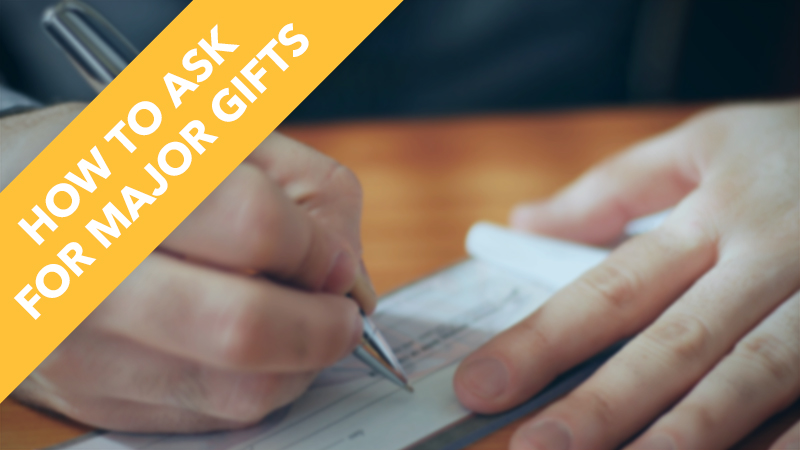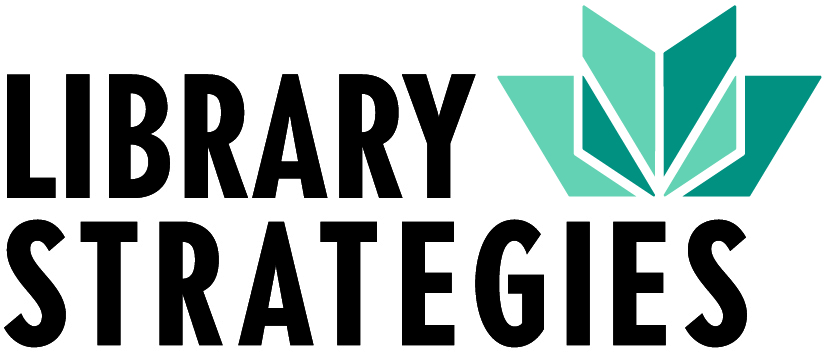How to Ask for Major Gifts

For many of us, asking someone for a large donation can be intimidating, or perhaps even terrifying. It shouldn’t be, if you think about it. Asking a potential donor to give a gift to the Library is simply sharing an opportunity. It is an invitation to be part of something exciting. An opportunity to change lives and strengthen the future of your community. Who wouldn’t want to be part of that?
So are there secrets to asking for major gifts? Not really. But here are a few tips to help you succeed.
1. Plan Ahead
Before meeting with a prospect, it is very important that you are well prepared.
- Prepare a short 2-3 minute “elevator speech” version of the case statement. Reference community impact rather than square footage or building features.
- Do some research on the prospect: their giving history, past interests, connection to the Library or library leaders, family legacy, etc.
- Have a specific gift amount in mind that you are prepared to ask the prospect to consider rather than “whatever you think is appropriate.”
2. Scheduling the meeting
Be clear and open about the purpose of the meeting. Suggest meeting at the prospect’s home or office and be sure to clarify who will be joining you for the visit. It is often recommended that two solicitors from your organization team up for the meeting. One of these may be your Library Director.
3. Opening
- “Thank you for giving us your time today.”
- Restate the purpose of the meeting.
- Confirm how much time the prospect has available.
4. Dialogue
Simply start a conversation: ask questions and LISTEN. Be curious and sincerely interested in your prospect. Find out what he/she cares about. It may be evident in the room. For instance, are there pictures of grandchildren or hobbies or pets? Do you share those interests? Do you have other connections? Be open about yourself and encourage a conversation by asking open-ended questions. At this point, the prospect should be doing most of the talking.
When it is an appropriate time in the conversation, you can make a transition by asking: “May I share some information with you about the vision for the Library?”
5. Presentation
- Present the short, compelling case for the library vision that you have prepared and rehearsed previously (see #1). Do not read the collateral material.
- The case should be tailored to the interests of the prospect. If you have done your research and have really listened in the first part of this conversation, you may be able to make some obvious connections between the prospect’s interests and the vision for the Library.
- Allow the prospect to ask questions at any time during this presentation.
6. The Ask: describe the campaign goal and ask for their participation.
Use your own language and tailor your request to the prospect’s interest. The best approach is to be very direct and clear about what you asking. Here is an example:
“As you know, the reason we are here today is to share the new library project with you and ask if you would be willing to join us in supporting this effort. We are hoping to raise $___ million of private funding. Would you consider a gift of $_________ toward the campaign and help make a significant impact on our community?”
7. Wait.
If the prospect needs some time to process your request, sit quietly and wait for his/her answer. This can be very difficult but if additional information is needed from you, the prospect will ask. Do not start talking more about the features and benefits of the project. Simply wait for them to respond. Seriously, just wait!
8. Close
There are just three possible answers to your request: yes, no, or maybe.
- Yes: Of course, this is the preferred response. A simple “thank you very much” is naturally appropriate. Follow this with a restatement of the gift and refer to the pledge card for payment information. Fill out the pledge card together.
- Maybe: This is the most challenging response. Sometimes “maybe” simply means the prospect wants to confer with a spouse/partner before committing to the gift. If this is the case, agree on follow up and next steps, but make sure this occurs within just a few days. “Maybe” could mean the prospect really has not made a decision and needs more information. Ask questions to find out what information they will require to make a decision. Sometimes “maybe” really means “no” but the prospect is not comfortable telling you that. If it really is “no,” provide an opportunity to clarify that and simply move on.
- No: If the prospect has been willing to sit down to meet with you, this is probably not a likely response. In fact, a firm and unconditional “no” is rare. A “no” response could actually mean “not now” or “not for that amount,” or “not unless ________ happens.” Again, ask questions to find out what the “no” really means and respond appropriately to give the prospect what he/she needs to respond with “yes.”
9. Follow Through
No call is complete without clarifying and summarizing the next steps, making sure that you and the prospect are in agreement. If the prospect needs more time to make a decision, do not leave the pledge card with the prospect! This is very important. Agree on a date when you can come back and confirm the gift and complete the form together.
Immediately after the meeting, send a note or email to the prospect with a description of your follow up steps. After you have secured the gift, send a hand-written thank you note and have campaign staff acknowledge the gift/pledge with a thank you response and confirmation of the billing schedule.
Not so bad, right? If you are passionate about the cause, prepared for the conversation, sincerely interested in connecting with your prospect, and clear about what you would like them to do, you will likely be successful asking for gifts. Trust us, once you make that first visit, especially if you received a “yes” response, future solicitations will be much easier – perhaps even enjoyable!

